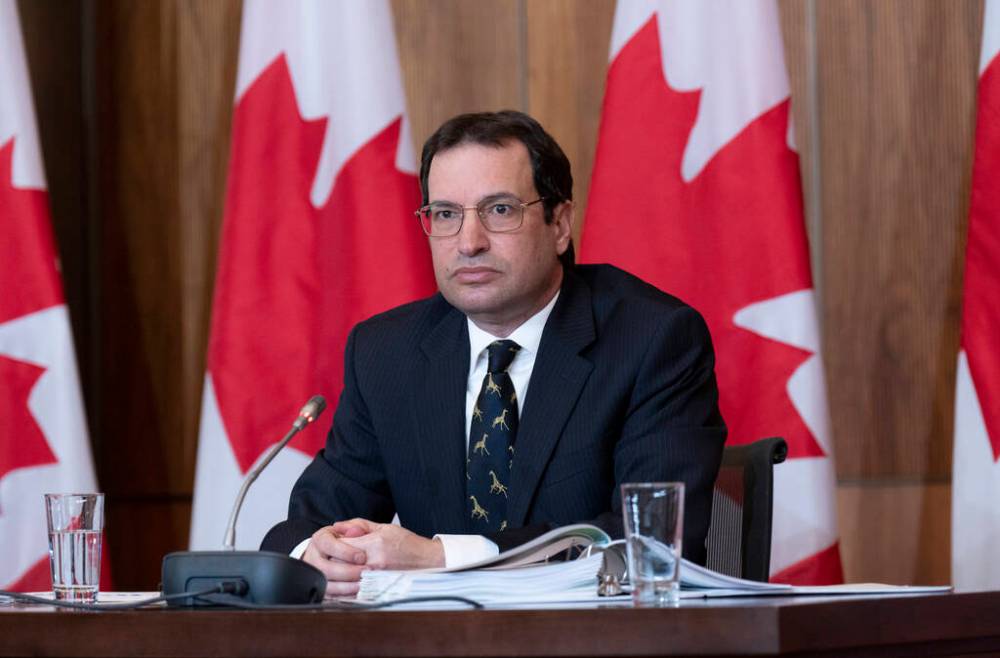Environment watchdog issues carbon tax, green plan warnings
Advertisement
Read this article for free:
or
Already have an account? Log in here »
To continue reading, please subscribe:
Monthly Digital Subscription
$1 per week for 24 weeks*
- Enjoy unlimited reading on winnipegfreepress.com
- Read the E-Edition, our digital replica newspaper
- Access News Break, our award-winning app
- Play interactive puzzles
*Billed as $4.00 plus GST every four weeks. After 24 weeks, price increases to the regular rate of $19.00 plus GST every four weeks. Offer available to new and qualified returning subscribers only. Cancel any time.
Monthly Digital Subscription
$4.75/week*
- Enjoy unlimited reading on winnipegfreepress.com
- Read the E-Edition, our digital replica newspaper
- Access News Break, our award-winning app
- Play interactive puzzles
*Billed as $19 plus GST every four weeks. Cancel any time.
To continue reading, please subscribe:
Add Free Press access to your Brandon Sun subscription for only an additional
$1 for the first 4 weeks*
*Your next subscription payment will increase by $1.00 and you will be charged $16.99 plus GST for four weeks. After four weeks, your payment will increase to $23.99 plus GST every four weeks.
Read unlimited articles for free today:
or
Already have an account? Log in here »
Hey there, time traveller!
This article was published 26/04/2022 (1269 days ago), so information in it may no longer be current.
OTTAWA — The Trudeau government’s climate agenda risks leaving behind rural Canada and Indigenous communities, according to federal audits that found those areas unfairly burdened by the carbon tax, and no real plan to get oil workers into green jobs.
In audits tabled Tuesday in Parliament, federal environment commissioner Jerry DeMarco warned the oil patch could be headed for a repeat of Newfoundland’s devastating collapse of the cod fishery in the 1990s, unless Ottawa finally tables a detailed plan for a green transition.
“They’re just making their work harder for themselves, because they’ll generate debate and discontent if they close doors without opening (others) at the same rate,” DeMarco told reporters.

“Canada needs to be transparent; whether it’s with respect to the disproportionate impacts of carbon pricing, whether transparent as to their modelling for emissions.”
Shortly after taking office, the Trudeau government signed the 2015 Paris Agreement that called for “a just transition” of workers in carbon-intensive industries into quality, green jobs.
The Liberals have since tabled plans for Canada to reach net-zero emissions, which hinge in part on pivoting some oil and gas workers into other industries, but with little detail on how that will happen.
One of the few initiatives that have started is a program to phase out coal plants, and the results haven’t been encouraging. DeMarco found Ottawa had no way to track how many coal workers in the Prairies and Maritimes found other quality jobs.
Instead, many fell onto employment insurance programs that aren’t designed to get someone into a new field. Ottawa did fund economic development projects in those regions, but many didn’t seem to have any link to hiring coal workers.
“Some communities and workers will require more help, if the transition to a low-carbon economy is to be equitable for all Canadians,” the audit reads. “Often, these communities are in rural Canada, and workers might not directly benefit from the low-carbon jobs of the future.”
Economists have estimated roughly 170,000 carbon-intensive jobs have no clear replacement. The auditor said that risks leaving 50 communities with no key industry, citing an analysis by the Canadian Institute for Climate Choices.
That charitable think tank considers four per cent of Manitoba’s workforce to be in “transition-vulnerable sectors” such as emission-intensive manufacturing, mining and building gas-dependent vehicles.
DeMarco argued the Liberals have been dragging their feet: “If the will had been there, they could have got a lot further along on this.”
Bureaucrats at Natural Resources Canada told him DeMarco were instructed to instead work on COVID-19 pandemic programs, which he noted ended up subsidizing the fossil-fuel industry.
“They chose to redirect the resources towards direct payments to industry during COVID, and put a pause on Just Transition. That’s a choice they made.”
Environment Minister Steven Guilbeault would not explain why his government has taken so long to table a plan it promised in 2015.
“I completely agree with the commissioner, that there is still a lot to do,” he told reporters, saying cabinet colleagues “are working on a Just Transition bill, which will be presented to Parliament in the not too distant future.”
Meanwhile, DeMarco found the existing carbon levy punishes Canadians living in rural areas and Indigenous communities, despite Ottawa exempting certain agriculture tasks from the tax and offering more more rebates outside of cities.
Ottawa collects a carbon tax on fuels and remits all the revenues to each province, mostly through income tax rebates and also in funding green retrofits. Rural homes get a 10 per cent bump up on the rebate, using a definition that in Manitoba covers all households outside the Winnipeg area.
But DeMarco found Ottawa had done no analysis to determine that 10 per cent figure. In fact, there is evidence rural communities are paying far more into the carbon tax than what they’re receiving back, despite limited opportunities to choose less carbon-intensive ways of getting around or heating homes.
In addition, the carbon tax rebates only come to those who file income taxes. Auditors noted Indigenous people are less likely to file taxes, in part due to mistrust toward the federal government.
DeMarco also found larger companies are also often getting charged more favourable rates under the carbon tax than small-scale businesses.
“The federal government has not done enough to address inequalities and that could include Indigenous people, people in small and medium businesses, including for example, many people in agriculture and rural areas,” said DeMarco.
“We’re asking them to do that calculation, check whether it adds up — and to report publicly on it.”
dylan.robertson@freepress.mb.ca

